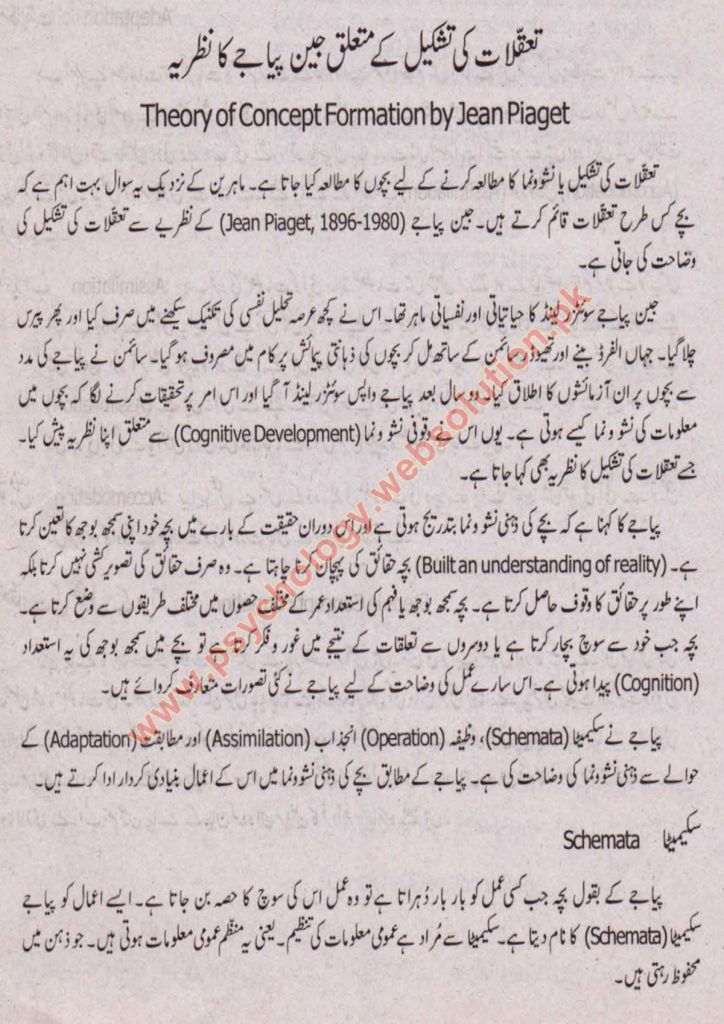Learn Psychology Thinking, Tools of Thinking Theory of Concept Formation Steps in Concept Formation Types Concepts Thinking & Characteristics of Creative People with the following detailed topics by Imran Shahzad.
Thinking is a process that we use to make sense of the world around us and our place in it. In psychology, we talk about different tools of thinking that can help us better understand ourselves and the people around us.
The Tools of Thinking in Psychology: A Guide to Critical Thinking, the latest Edition can help us better understand ourselves and the people around us. It provides a variety of methods to help us think critically and solve problems. This book can help us become better thinkers and problem solvers, which can help us in our personal and professional lives.
1. The Definition of Tools of Thinking in Psychology
The Tools of Thinking in Psychology: A Guide to Critical Thinking, defines tools of thinking as “a set of mental skills that help people solve problems and make decisions.” Critical thinking is the process of using logic and reason to analyze information and come to conclusions. The book provides a guide to critical thinking skills, including how to identify and evaluate sources of information, use logic to draw valid conclusions, and develop a critical perspective.
2. The Concept of Critical Thinking
Critical thinking is a process of thinking that helps individuals make well-informed decisions. It involves using logic and reason to analyze information and come to conclusions that are based on facts, not assumptions. Critical thinking is important in all areas of life, including in the fields of science, mathematics, and the arts.
3. The Types of Tools of Thinking in Psychology
Critical thinking is a process of analyzing information, evaluating arguments, and drawing conclusions based on evidence. There are a variety of tools that can be used to help with critical thinking, including problem-solving, thinking skills, and critical thinking tools. Problem-solving is the process of finding a solution to a problem. Thinking skills involve the ability to think critically and solve problems. Critical thinking tools are resources that can be used to help with critical thinking. Some common critical thinking tools include dictionaries, encyclopedias, and thesauri.
4. The Importance of Tools of Thinking in Psychology
Critical thinking is an important tool in psychology. It allows us to analyze information and form conclusions based on evidence. Critical thinking skills help us to think critically and make sound decisions. They also help us to understand complex problems and come up with solutions. Critical thinking skills are essential for problem-solving, critical thinking, and decision-making.
5. How Many Tools of Thinking in Psychology?
There are six tools of thinking in psychology: critical thinking, problem-solving, decision-making, analysis, synthesis, and perspective-taking.
Critical thinking is an essential tool for understanding ourselves and the world around us. It allows us to analyze information and come to conclusions based on evidence. Critical thinking is important for making informed decisions in life.
The tools of thinking in psychology: a guide to critical thinking, provides a guide to help students develop critical thinking skills. The book covers topics such as how to identify and assess information, how to use logic and reasoning to come to conclusions, and how to use evidence to support claims. The book is designed to help students develop critical thinking skills so they can make informed decisions in their lives.
- Thinking
- Origa Ghassel
- Tools of Thinking
- Imagery
- Imagination
- Concept Formation
- Theory of Concept Formation by Jean Piaget
- Steps in Concept Formation
- Types of Concepts
- Types of Thinking
- Realistic Thinking
- Reasoning
- Problem Solving
- Creative Thinking
- Characteristics of Creative People
Thinking Tools, Types & Theory | Concept Formation in Psychology
Piaget’s Theory of Cognitive Development
0 to 2 Years Sensory-motor stage
Learning occurs through the sensory-motor system; object permanence is established. Becomes aware of cause-and-effect relationships.
2 to 7 Years Pre-operational stage
Becomes Egocentric Language develops. Learning is based on appearances; concepts are developed in no logical relation to each other.
7 toll Years Concrete operations stage
Learning is based on figuring out solutions to concrete problems. Develops conservation of volume, length, mass. Organizes objects into ordered categories. Operations of mathematics and logic emerge.
11 to 15 Years and up Formal operations stage
Learning is based on logical form (validity) apart from content(truth value), Reasoning skill develops i.e. based on possibilities rather than reality. Thinking becomes abstract and symbolic


















Thanksgiving to dsc&ded psychology methods &metrial sir. Allah appku maddad kare ameen.
Dear sir how can i get this book.?